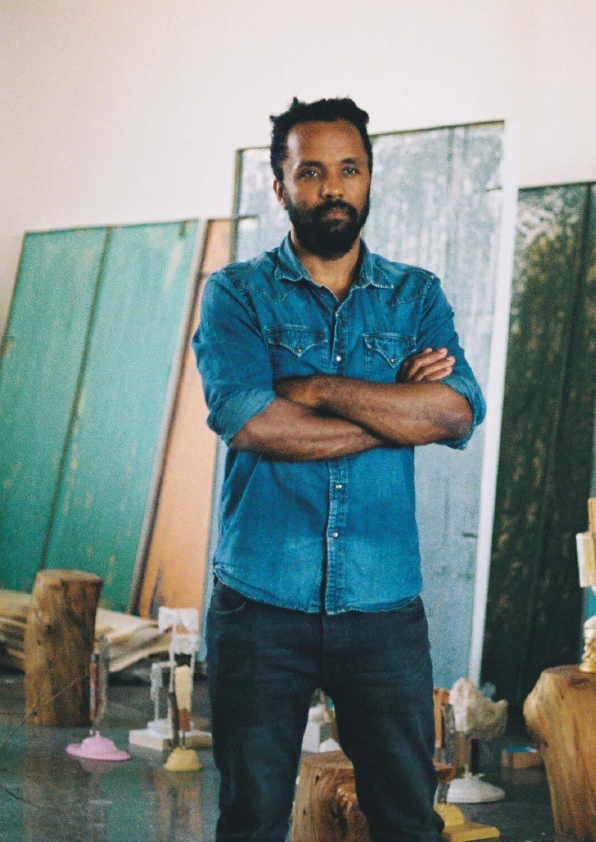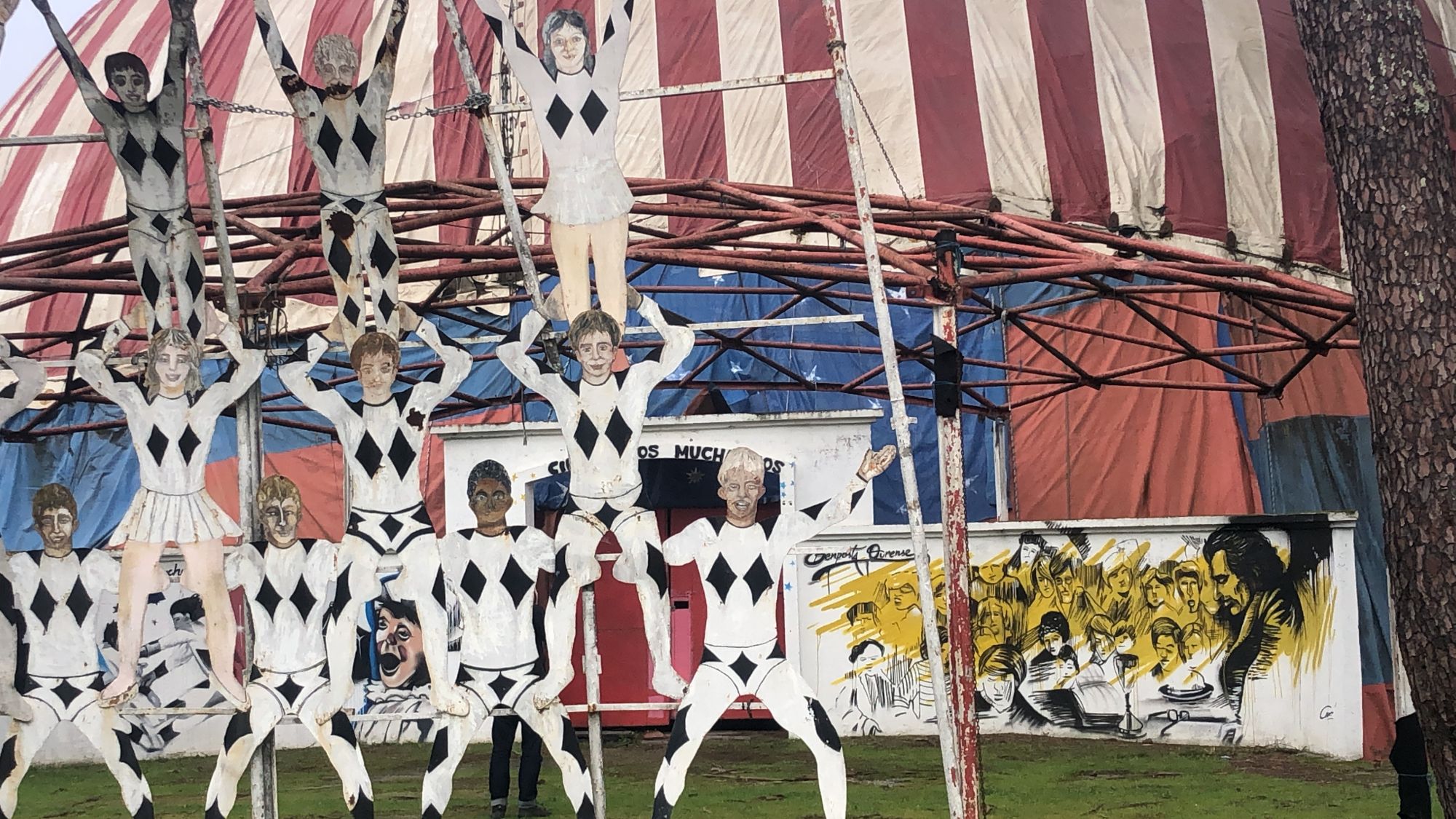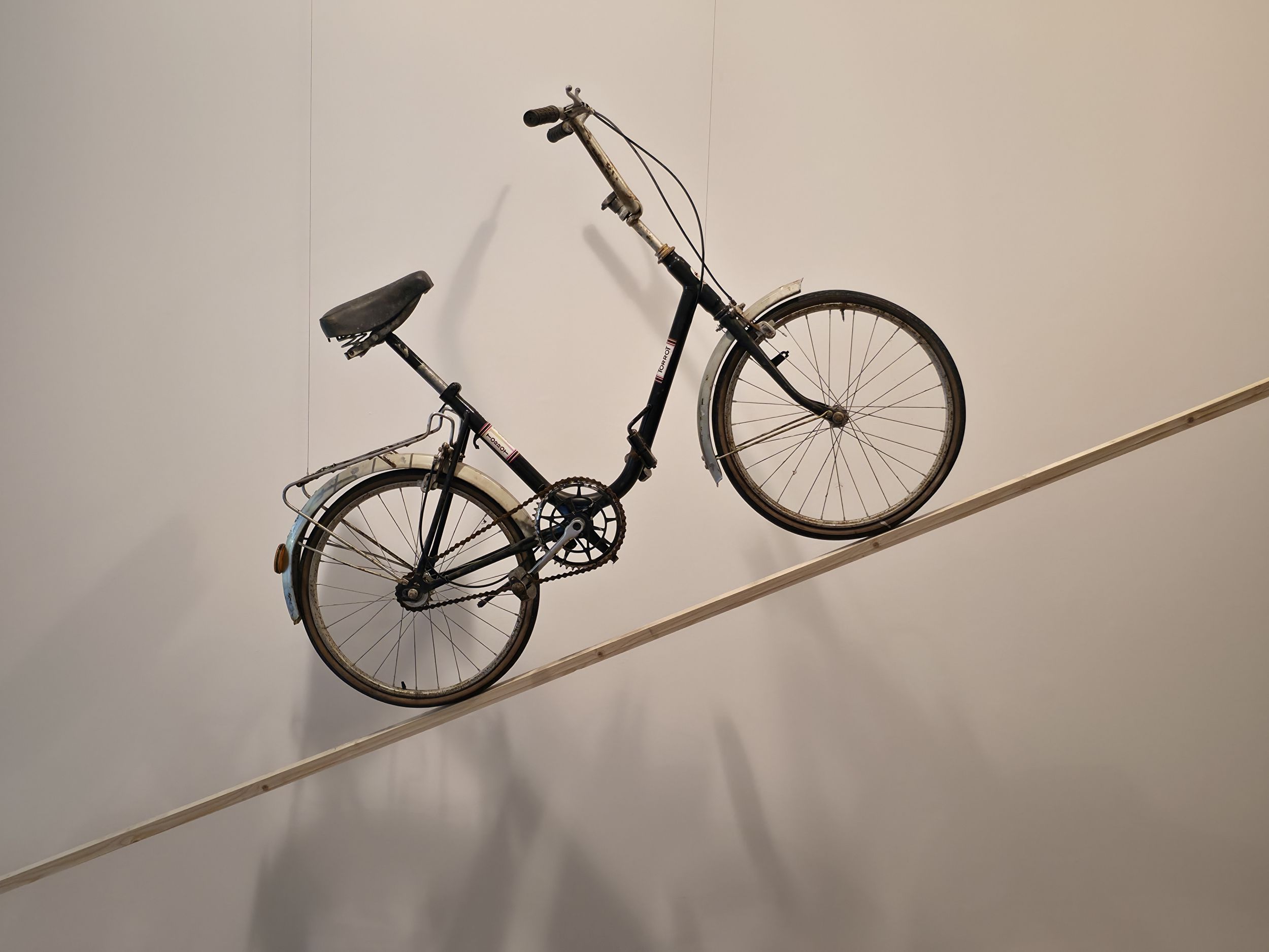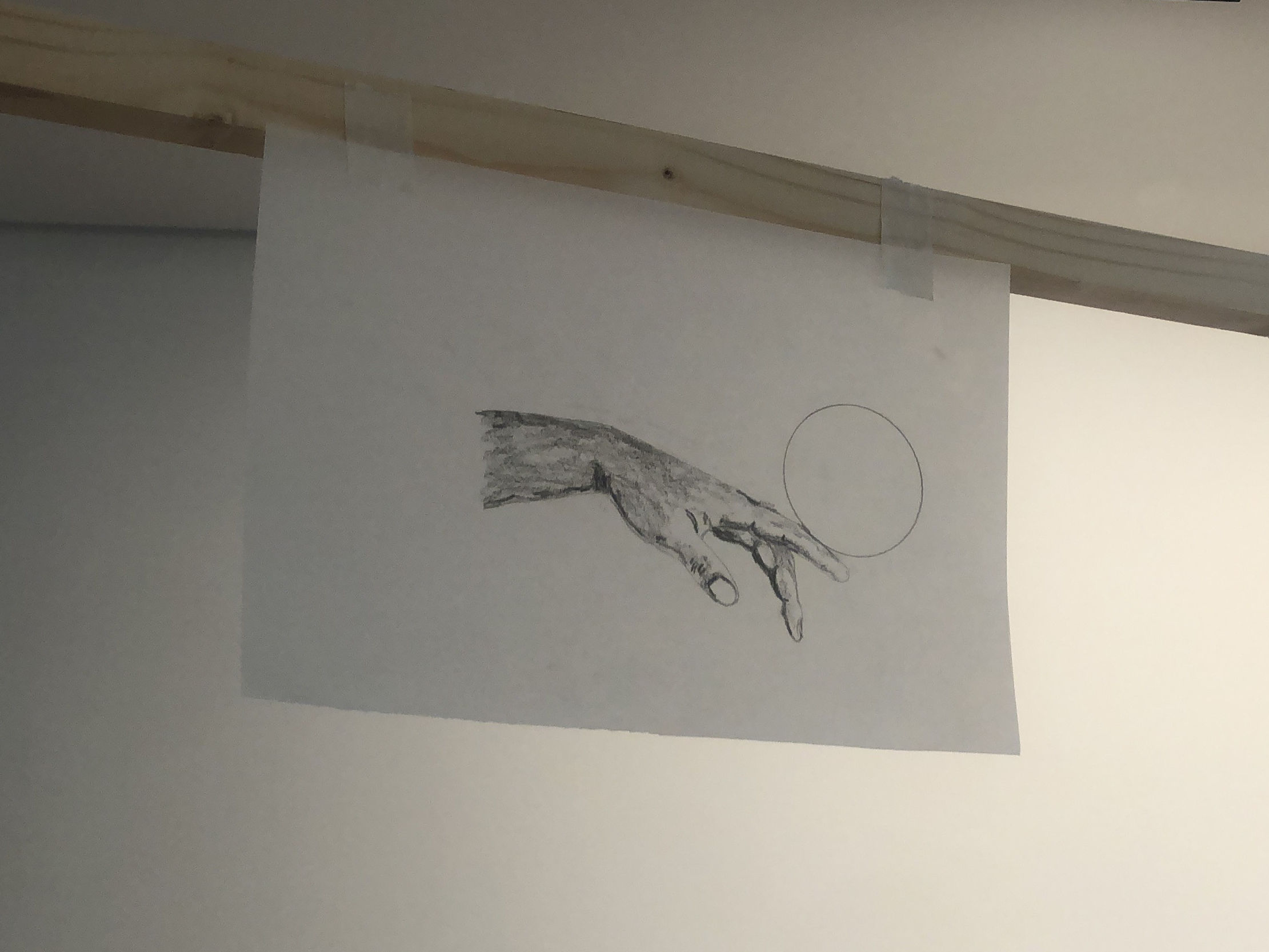Artists
Carlos Bunga’s (1976, Porto, Portugal) work reflects on the fragility and transience of the – architectural, social or symbolic – structures we live in through ephemeral materials such as cardboard, adhesive tape or reused furniture to build precarious architectures. These constructions are imbued with a utopian dimension, as they present other possible ways of inhabiting, more open, sensitive, sustainable and humane. His installations, paintings, sculptures and films – all of them with a performative dimension in which the physical action of building and destroying is felt – may seem fragile or even unstable, but that is precisely why they open up the possibility of thinking about more flexible systems. Carlos Bunga's work is deeply political, an invitation to rethink how we inhabit and what we could build if we move away from monumentality and permanent structures associated with power to suggest temporary, mobile and environmentally sensitive architectures.





